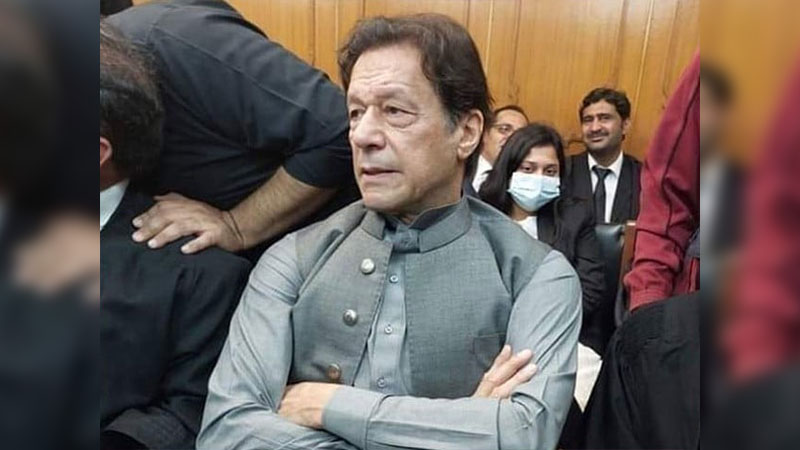Former Prime Minister and PTI leader Imran Khan has called upon the Supreme Court to inspect his jail cell in Adiala Jail, countering the federal government’s claims about his living conditions. This comes after the federal government presented ‘pictorial evidence’ disputing Khan’s assertion of being held in solitary confinement.
Chief Justice of Pakistan Qazi Faez Isa noted that while the court might consider appointing a judicial officer to verify the situation, no specific date was mentioned for such an inspection.
Government’s evidence and Supreme Court proceedings
The federal government, represented by Attorney General for Pakistan Mansoor Usman Awan, submitted a detailed report accompanied by photographs of Khan’s cell. The report highlighted the amenities provided to Khan, including an LED screen, room cooler, study table and chair, a personal exercise bike, and a dedicated kitchen with a menu of his choice. It also listed the visitors Khan had received between September 2023 and May 2024, including family, lawyers, and political figures.
During the Supreme Court session on Thursday, the five-judge bench reserved its decision on the federal government’s appeal against a September 15 ruling that declared amendments to the National Accountability Ordinance (NAO) illegal.
Imran Khan’s response and live-streaming controversy
Appearing via video link from jail, Khan expressed his discontent with the Supreme Court’s decision to ban live-streaming of his case, which he perceived as a slight against his character. The court had previously justified the ban, citing concerns over potential misuse and grandstanding.
In response, Chief Justice Isa clarified that the judiciary was not obligated to justify its decisions, urging Khan to focus on the case at hand. Justice Aminuddin Khan reinforced that the matter of live-streaming had been conclusively settled.
Discussion on NAB amendments and political accountability
Khan argued that the appointment of the National Accountability Bureau (NAB) chairman should fall under the Supreme Court’s jurisdiction to prevent misuse of power. He criticised the recent amendments to the NAB law, suggesting they were designed to protect certain political leaders.
Justice Jamal Khan Mandokhail acknowledged the historical misuse of NAB against elected officials but stressed that the solution lay in legislative reform rather than judicial intervention. Justice Athar Minallah added that the NAB amendments did not imply the cessation of corruption cases but rather their reassignment to appropriate courts.
Economic concerns and amnesty scheme debate
Khan also voiced concerns over Pakistan’s dwindling foreign exchange reserves, attributing the decline to money laundering by the elite. He cited a UN study from 2021 indicating that elites in developing countries had laundered $7 trillion to the West. However, Chief Justice Isa questioned Khan’s own introduction of amnesty schemes during his tenure, which Khan defended as a measure to legitimise black money.
Court’s directive to NAB
The court scrutinised NAB’s financial report, questioning the claimed recovery of $10 billion related to the Reko Diq case. The Supreme Court hinted at issuing a contempt notice for misleading information and instructed NAB officials to provide a detailed breakdown of their budget and recoveries over the past decade.
